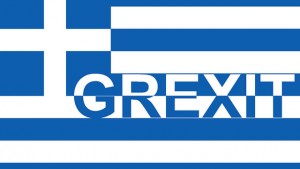Home » Commentary » Opinion » Contradictions rule in Greece
· Ideas@TheCentre
 Part of the difficulty in understanding where the Greek crisis will head is that so many of the actions of the key players are contradictory.
Part of the difficulty in understanding where the Greek crisis will head is that so many of the actions of the key players are contradictory.
The Greek people have resoundingly rejected the terms proposed by those willing to give them more free money to prop up their failing economy. How this brave decision to demand unlimited access to countries money can be hailed as a triumph of democracy, which the EU leaders should respect ahead of the wishes of their own voters, is the first contradiction.
But it should hardly have been a surprise to those who have followed the debate over ‘austerity’. Left wing commentators, who have quite the soft spot for socialist Syriza, have been itching for a country to reject the supposedly ‘neoliberal’ ideas of the EU for some time.
To pretend that a Europe-wide super government, famous for over-regulating everything and made up of some of the most economically interventionist societies in the world, is somehow a neoliberal institution is both contradictory and hilarious.
In a free market, socialist Greece would be bankrupt and already fast on its way to hyper-inflating the drachma to pay for its still-broken spending model.
But that has not happened. Indeed it may not happen, as the greatest contradiction may yet be the one that exposes the EU itself as a farce.
The breakdown of talks on the bailout has brought Greece to the edge of no return, with Greek banks just days away from collapse.
Bafflingly, the Greek government turned up for Tuesday’s bailout meeting without a plan to put forward replacing the one rejected by their people. They clearly believe they have a mandate to demand concessions.
While, 16 of 18 European states at Tuesday’s meeting now want to kick Greece out of the Eurozone, a ‘final’ summit has been called for this weekend to try and come up with an agreement to fix Greece once and for all.
If in the end, Greece remains in the Eurozone without committing to reform because the EU institutions capitulate, then all that talk and pain over the last five years, the Maastrict treaty, and the credibility of fiscal reform in Europe, might as well have been for nothing.
Contradictions rule in Greece